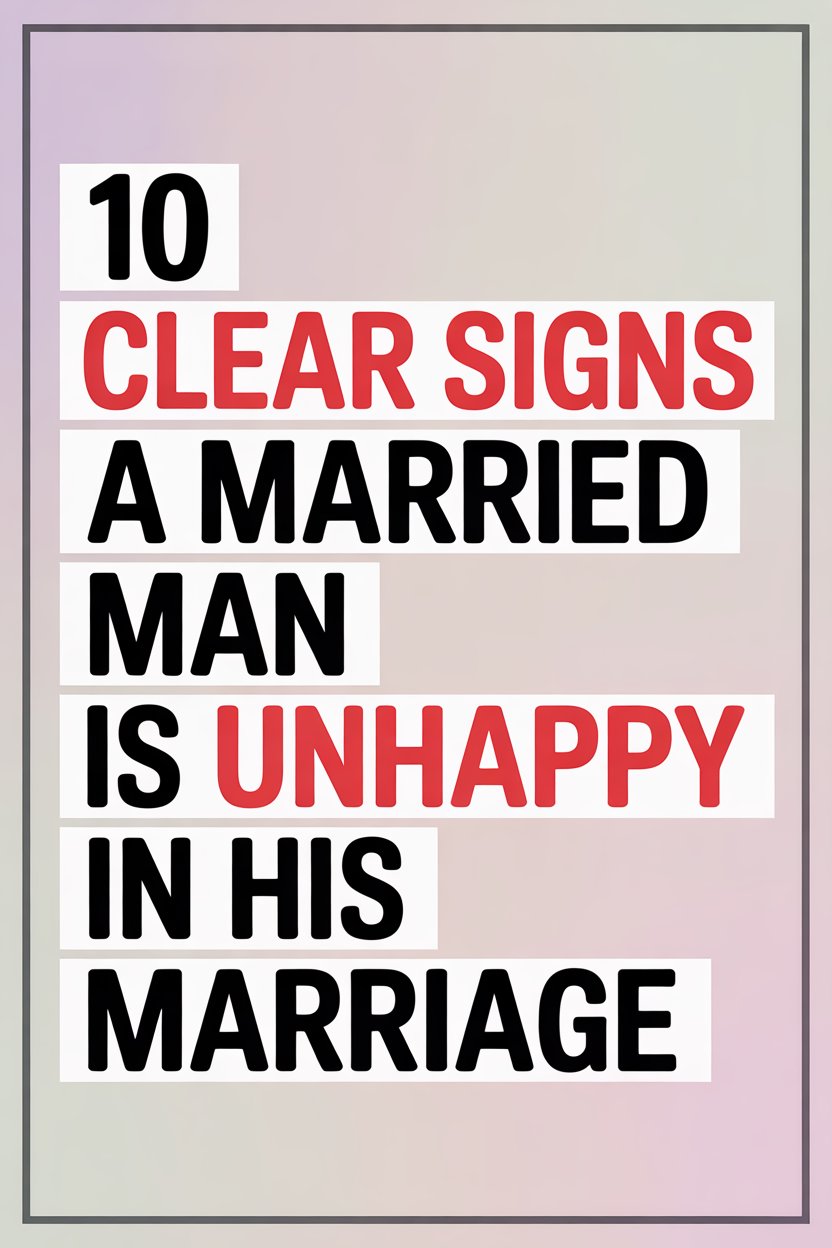Marital unhappiness often reveals itself through a lack of communication and decreased emotional intimacy. Conversations that once filled dinner times with lively exchanges can dwindle into awkward silences, with responses becoming minimal and monosyllabic.
This creates a chasm where the daily sharing of experiences fades away, leaving one partner feeling like they are talking to a wall.
Emotional intimacy also declines as affectionate gestures like hugs and kisses become rare, and meaningful conversations turn superficial or forced.
This withdrawal signals a shift in focus, often hinting at deeper marital issues. Recognizing these signs early is crucial for addressing and resolving the underlying causes of unhappiness.
1. Lack of Communication
You might notice a sudden drop in conversations. Once chatty dinner times now pass in silence. His responses are minimal, often monosyllabic. There’s no more sharing of daily highs and lows, and you might feel like you’re talking to a wall.
This lack of communication creates a chasm that’s hard to bridge.
2. Decreased Emotional Intimacy
Emotional connection dwindles as he focuses his energy elsewhere. Hugs, kisses, and affectionate touches become rare. Conversations that once felt deep and meaningful now feel superficial or forced.
When emotional intimacy drops, it often signals deeper marital unhappiness.
Changes in Daily Behavior
3. Altered Homecoming Routine
Notice if he’s no longer eager to come home after work. An unhappy married man might start arriving later than usual, citing work or other commitments. He may linger longer at the office or make excuses to avoid returning home.
This change signifies a desire for personal space and a reprieve from marital tension.
4. Lack of Enthusiasm for Family Activities
Observe his level of engagement in family activities. When he stops showing enthusiasm for events involving the family, such as outings or game nights, it’s a sign something’s wrong.
Disinterest in activities that once brought joy indicates an emotional withdrawal and highlights underlying marital dissatisfaction.
Increased Conflict and Criticism
5. Frequent Arguments
Frequent arguments indicate tension in the marriage. Small issues can turn into significant conflicts if one partner is unhappy. For instance, disagreements about chores can escalate to heated exchanges.
These arguments are often more about underlying dissatisfaction than the specific issue at hand.
6. Unnecessary Criticism Towards Partner
Constant criticism of a partner suggests deep-seated unhappiness. Instead of fostering a supportive environment, the unhappy spouse may point out flaws or mistakes frequently.
For example, criticizing the way dinner is cooked or handling finances. This behavior can erode the relationship further.
Physical Signs of Stress
7. Changes in Appearance
Noticeable changes in a married man’s appearance can indicate stress. He may stop grooming regularly, skip haircuts, or wear wrinkled clothes more often.
These shifts suggest he’s prioritizing other concerns over personal upkeep. Weight fluctuations might also be a sign. Rapid weight loss or gain often accompanies emotional strain as one’s eating habits change.
8. Signs of Poor Health
Stress frequently manifests through physical health problems. Unhappy married men may suffer from chronic headaches, back pain, or frequent colds due to weakened immunity.
Sleep disturbances, including insomnia or oversleeping, are common. He might also experience gastrointestinal issues, such as stomachaches or indigestion, directly linked to anxiety and stress.
Seeking Solitude More Often
9. Spending Less Time at Home
When a married man starts spending less time at home, it’s a clear sign of seeking solitude. If he’s frequently staying late at work, taking up more hobbies outside, or simply leaving the house without clear reasons, it indicates dissatisfaction.
It might not be a direct avoidance, but rather a subconscious need to escape the home’s emotional environment.
According to a study from the American Sociological Review, individuals unhappy in their marriages often increase their time spent on solitary activities.
10. Avoiding Shared Responsibilities
Avoiding shared responsibilities further highlights an unhappy marriage. Responsibilities like parenting activities, household chores, or joint financial decisions are often neglected.
For instance, he might skip family dinners, delegate his share of chores, or show disinterest in planning future family activities.
This behavior shows a distancing not just physically, but emotionally and mentally, pointing towards deeper marital issues.
By noticing these patterns, you can better understand the underlying issues in your relationship and address them effectively.
Final Thoughts
Recognizing the signs of an unhappy marriage is crucial for addressing underlying issues and fostering a healthier relationship. If you notice these behaviors in your partner, it’s essential to communicate openly and seek solutions together.
Professional counseling can also provide valuable guidance. Remember, acknowledging the problem is the first step towards rebuilding a stronger, more fulfilling marriage.





